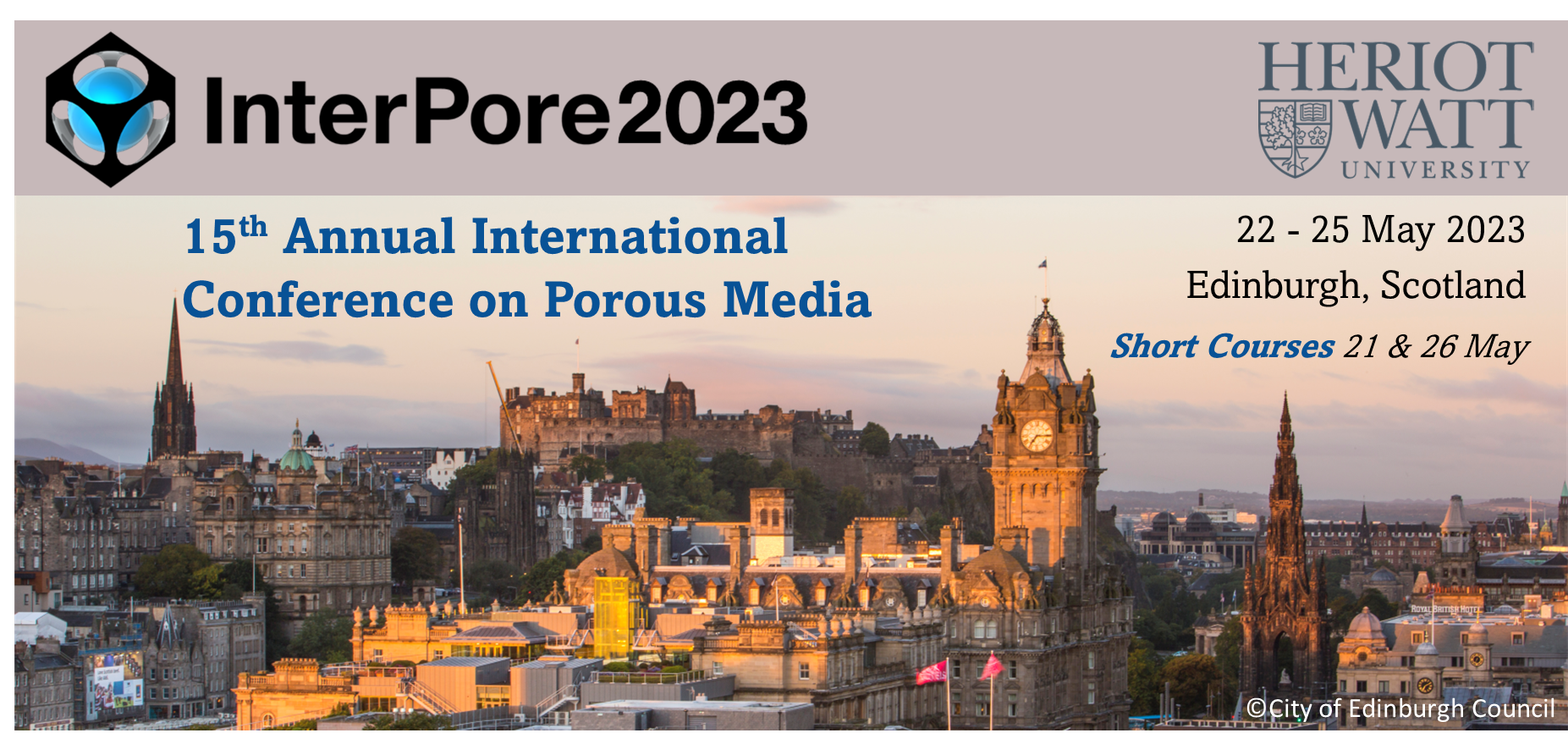Speaker
Description
Fractures in the geological formations can propagate and slide when the in-situ compressive stress state changes. As for the compressive nature of the stress, shearing (i.e., Mode II mechanical failure) is the dominant fracture propagation mechanism. In addition, geological formations entail several fractures which can also cross each other. To avoid the use of excessively high-resolution meshes, while resolving the explicit fractures, the extended finite element method (XFEM) is used. The XFEM enriches the FEM continuous space by discontinuous functions so the cracks are explicitly and accurately captured. The linear momentum balance equation is then supplemented by the Mohr-Coulomb friction law, which states the maximum friction a fracture element can tolerate. Additionally, in this work, further constraints are applied to ensure no penetration of elements takes place as a result of significant deformations.
For the simulation of highly fractured geological formations, applying XFEM directly is computationally infeasible, due to the excessive number of extra degrees of freedom (DOFs). To resolve this challenge, we propose this multiscale extended finite element method (MS-XFEM) to simulate the fractures propagation under compressive loading in geological formations. Local XFEM-based basis functions are constructed to capture the compression and the sliding of fine-scale fractures. In each time step when the fractures propagate, the basis functions are updated adaptively in certain regions where fractures geometries are changed. Using these basis functions, a very efficient FEM-based coarse-scale system is developed since it has no extra DOFs. Once the coarse-scale solution is obtained, it is prolonged to the fine-scale original resolution using the basis functions. This approximate fine-scale solution is then used to estimate the group of growing fractures tips and their growing angles. This allows for exploiting the locality of the propagation process fully while solving a global system. To control the error, an iterative procedure is also developed. MS-XFEM casts a promising method for field-scale applications.
| Participation | In-Person |
|---|---|
| Country | Netherlands |
| Energy Transition Focused Abstracts | This abstract is related to Energy Transition |
| MDPI Energies Student Poster Award | No, do not submit my presenation for the student posters award. |
| Acceptance of the Terms & Conditions | Click here to agree |







